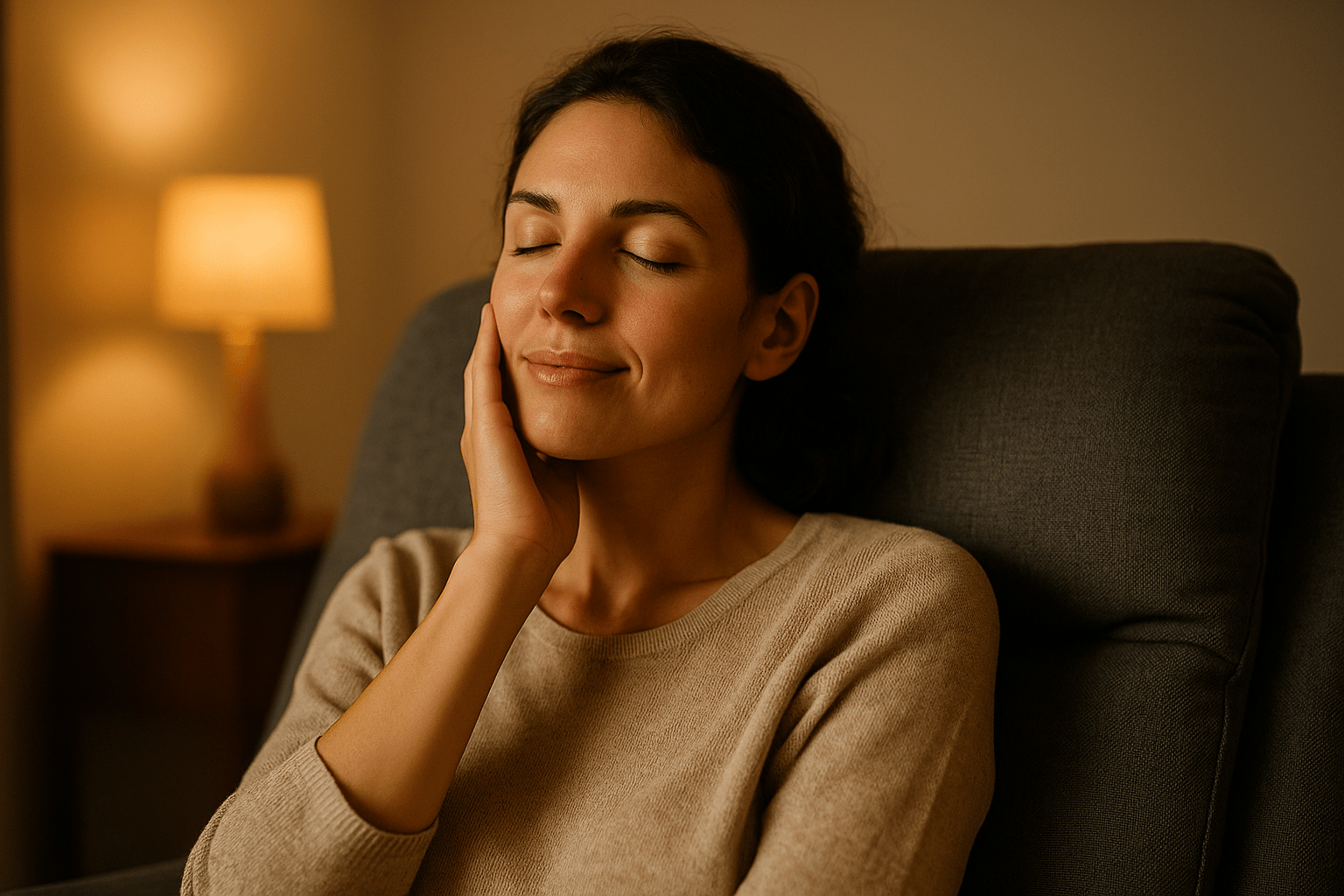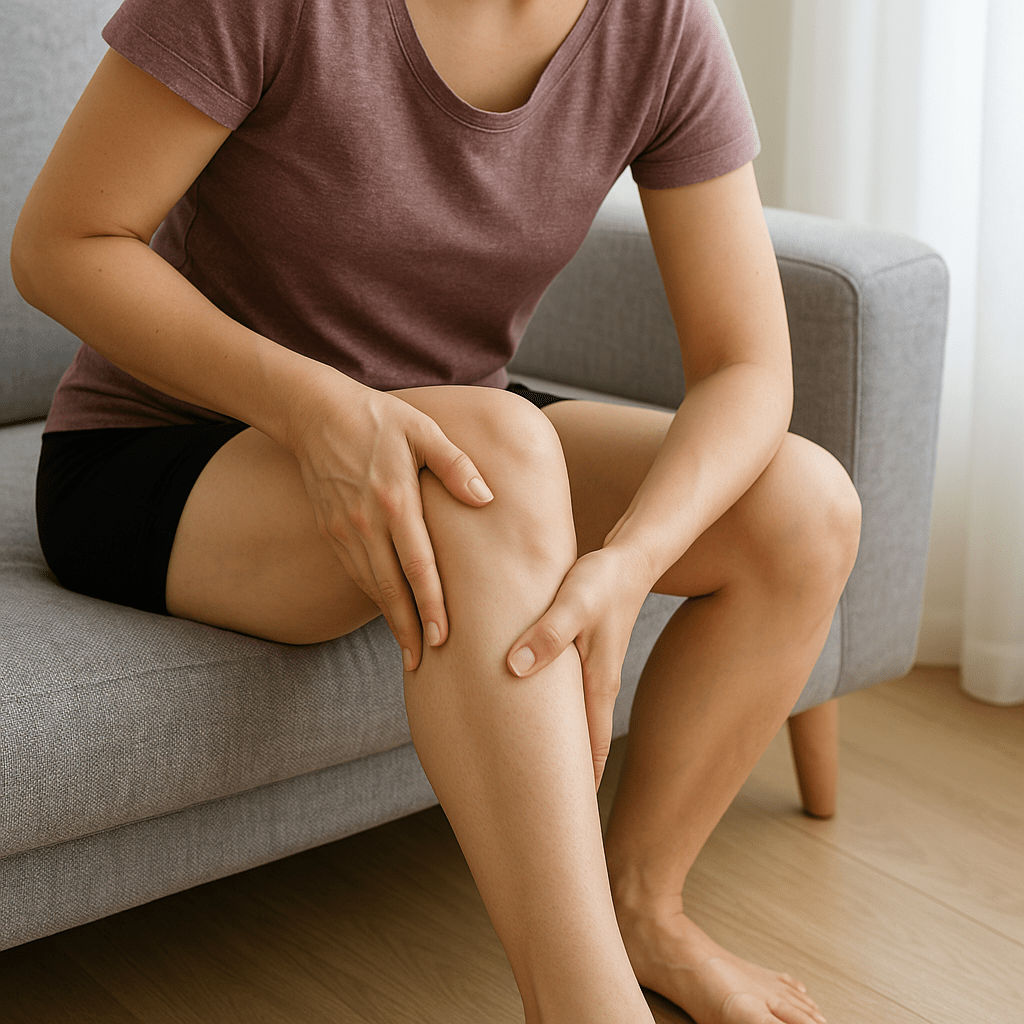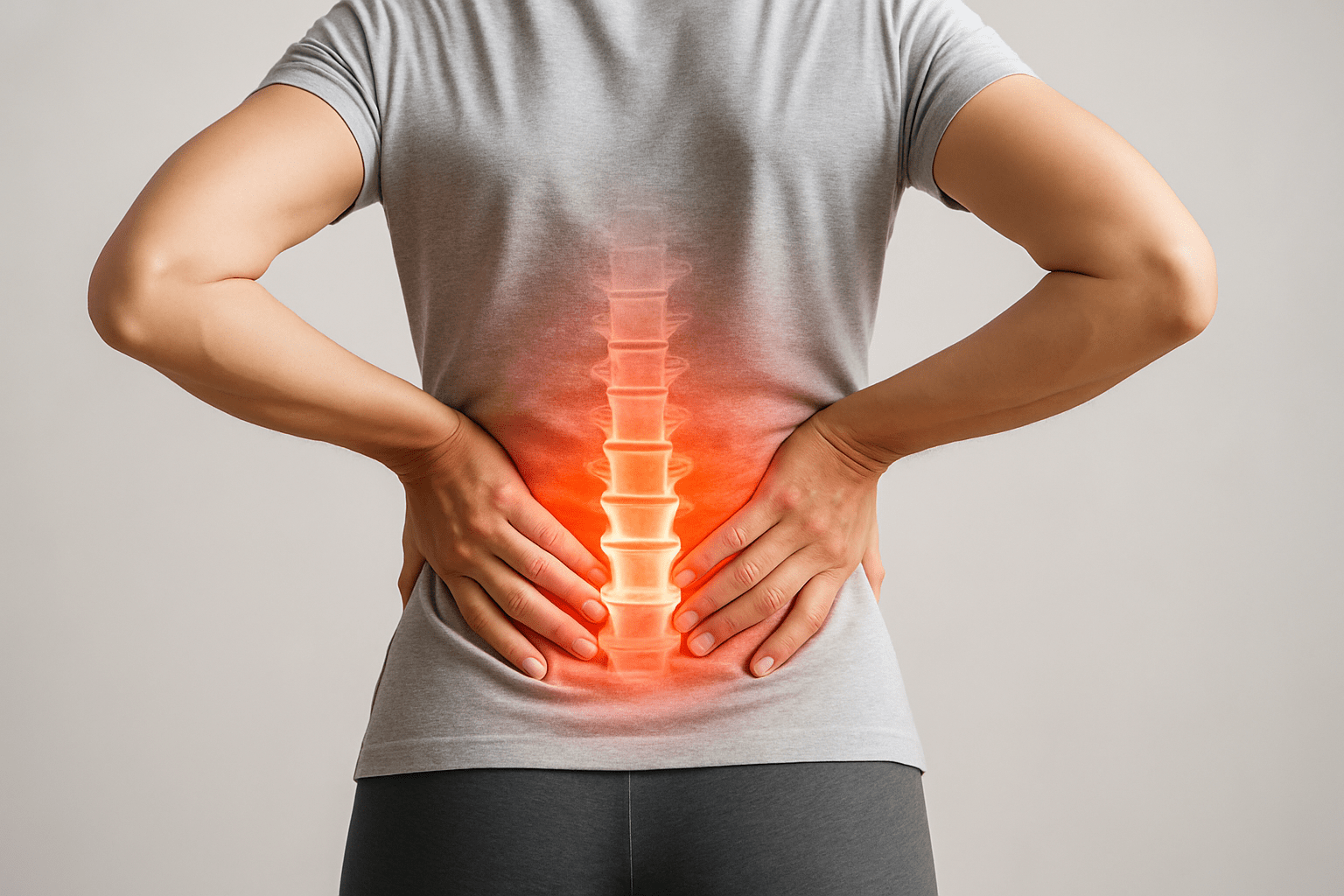Say goodbye to stress: the effect of a massage on the nervous system
In 2020, one in four people in employment in Germany felt under pressure due to mental stress at work. The figures from the Federal Statistical Office illustrate the far-reaching threat posed by stress in our modern world. We encounter stress not only at work, but also in our private lives - be it due to time pressure, constant availability or the demands of daily life. This not only puts a strain on our mental health, but also on our physical health - especially our nervous system. The nervous system plays a central role in controlling and regulating our body and is in close contact with our psyche. Massages offer an effective way of...


In 2020, one in four people in employment in Germany felt under pressure due to mental stress at work. The figures from the Federal Statistical Office illustrate the far-reaching threat posed by stress in our modern world. We encounter stress not only at work, but also in our private lives - be it due to time pressure, constant availability or the demands of daily life.
This not only puts a strain on our mental health, but also on our physical health - especially our nervous system. The nervous system plays a central role in controlling and regulating our body and is in close contact with our psyche. Massages offer an effective and pleasant way of calming the nervous system and reducing stress.
In this article, you can find out what effect a massage can have on the nervous system. We explain how the nervous system, its structure and function, and how targeted massage techniques can promote the well-being of body and mind.
Reading tip: Find out all about massages and their different areas of application in the article"From head to toe - where massages can help".
NoteThis article does not replace advice from a medical professional. If you suffer from persistent strain or pain, be sure to consult a doctor.
The human nervous system: structure and function
Our nervous system is the body's central control system and consists of the central nervous system (CNS) and the peripheral nervous system (PNS).
The CNS comprises the brain and the spinal cord, which together coordinate all bodily functions and reactions. The brain processes information and sends signals to the body through the spinal cord, while the PNS handles communication between the CNS and the organs, muscles and skin. This interaction enables us to react to stimuli, control movements and regulate vital processes such as breathing and heartbeat.
Hormones play an essential role in the nervous system by acting on the brain and influencing various bodily functions. Stress hormones such as adrenaline and cortisol, which are released when the sympathetic nervous system is activated, increase the heart rate and raise blood pressure. At the same time, hormones regulate our emotions and can lead to psychological and physical problems in the event of a long-term imbalance.
Sympathetic and parasympathetic nervous system

The autonomic nervous system, a part of the peripheral nervous system, is divided into the sympathetic and parasympathetic nervous system. Both fulfill central functions for our health.
The sympathetic nervous system switches into high gear as soon as the body encounters stress. It ensures an increased heart rate, increased alertness and a rapid supply of energy - all mechanisms that enable us to survive in dangerous situations. This "fight-or-flight" response is vital in the short term, but can cause health problems such as high blood pressure and sleep disorders if activated continuously.
In contrast to this is the parasympathetic nervous system, which returns the body to a resting state after periods of stress. state. It slows down the heartbeat, promotes digestion and enables regeneration. By activating the parasympathetic nervous system, the body is put into "rest-and-digest" mode, which is crucial for relaxation and healing.
A balance between these two systems is essential for our health and well-being. You can find out more about this in our article "Stress at work: causes and solutions".
Interaction of psyche and body
For a long time, these two areas were perceived as separate and treated as such. However, it is now widely known that they interact with each other in complex ways.
When the mind is under stress, this often affects the body. Mental stress puts the sympathetic nervous system on alert and triggers a chain of physical reactions. This leads to an increased release of stress hormones such as adrenaline and cortisol, which accelerate the heartbeat, increase blood pressure and weaken the immune system.
In the long term, this can lead to serious health problems such as cardiovascular disease, digestive disorders and chronic pain. At the same time, and vice versa, our physical condition also affects our mental health. Persistent physical complaints such as pain or exhaustion can lead to anxiety, depression and a general feeling of being overwhelmed.
This close interaction between mind and body shows how important it is to look after both the mind and the body. But how exactly can massages help to break this cycle and relax the nervous system when we get into trouble?
The effect of massages on the nervous system

Can a simple touch really relieve stress and calm the nervous system? Massages are a proven method of achieving just that.
Through targeted touch techniques, massages can reduce the production of stress hormones and promote the release of endorphins - the so-called happiness hormones. This leads to deep relaxation and a noticeable calming of the nervous system. The activation of the parasympathetic nervous system is particularly important, as it puts the body in a state of calm and relaxation. But which massages are particularly effective in relaxing the nervous system?
There are various types of massage that are specifically aimed at calming the nervous system and reducing stress levels. The manual lymphatic drainage is a gentle technique that stimulates the lymphatic flow and helps to reduce swelling and tension. The foot reflexology massage works via pressure points on the feet, which are connected to various organs and body regions, and thus promotes general well-being. Shiatsua Japanese massage techniqueuses targeted pressure along the body's energy pathways to release blockages and harmonize vital energy.
Reading tip: The flow within you, how manual lymphatic drainage increases your well-being
Thai massages have a remarkable effect on the psyche. They combine acupressure, stretching and gentle movement to release tension and improve the flow of energy.
Also the Swedish massage is also known for releasing muscle tension and calming the nervous system through slow, flowing movements. Particularly effective for chronic tension is the deep massageas it reaches deeper layers of muscle and can therefore provide lasting relief from stressful tension.
Massages therefore offer far more than just physical relief. They have a direct effect on the nervous system and create a balance between body and mind - a balance that is essential in our hectic world.
Massage chair: a flexible solution to strengthen the nervous system
We all know how challenging it can be to find time to relax on a regular basis. This is where massage chairs can play to one of their many strengths, as they combine comfort and effective stress management. They offer the opportunity to take time out at any time and with little effort, without the need for planning or travel time.
Massage chairs specifically simulate various massage techniques that activate the parasympathetic nervous system and put the body into a state of deep relaxation. The steady, calming movements reduce stress hormones, relieve tension and promote regeneration. This allows you to effectively support your nervous system - from the comfort of your own home.
What else can you do to prevent and alleviate stress?
In addition to massages, there are many other ways to strengthen your nervous system and reduce stress. A healthy lifestyle is at the top of the list of priorities.
Regular exercise such as yoga or tai chi balances body and mind, while a balanced diet with omega-3 fatty acids and antioxidants strengthens the nerves. Breathing exercises and meditation can also help to calm the mind and activate the parasympathetic nervous system. These are often very simple but effective measures that can sustainably improve your well-being and reduce stress.
Find your way to a relaxed nervous system through gentle touch
It is in our hands to do something for your mental and physical health. The fact that this works with such underestimated means as a simple massage should certainly motivate us to take action.
A regular massage can work wonders by calming your nervous system and helping you to feel more serene. Whether through manual massages, a massage chair or a conscious lifestyle, you have the opportunity to reduce stress and actively take care of your well-being. Allow yourself the time to invest in yourself and feel how these simple but effective methods give you new strength. Because sometimes it doesn't take much to bring your body and mind back into balance.

Co-founder and Managing Director of Massage Chair World. With his expert knowledge and industry expertise, he helps private individuals and companies to find the right massage chairs for relaxation, health and vitality. The individual expert advice is provided both by telephone or video chat, as well as in the exhibition outside Stuttgart.




